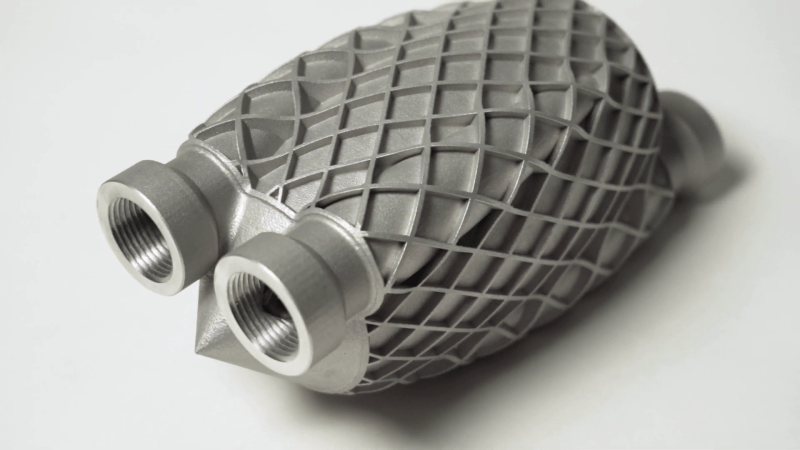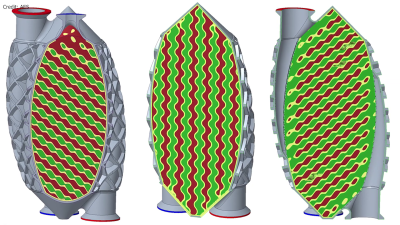
3D printing allows the physical manufacturing of some unique geometries that are simply not possible with other processes. If you design around these strengths, it is possible to create parts that significantly outperform more conventional alternatives. With this in mind [Advanced Engineering Solutions] created a metal 3D printed heat exchanger that is half the size and four times the efficiency of the one it was designed to replace. Video after the break.

Made from an aluminum alloy using a Laser Powder Bed Fusion (LPBF) machine, the heat exchanger is intended to cool transmission oil on military helicopters by using fuel as the coolant. Looking somewhat similar to a Fabergé egg, it uses gyroid “infill” for the actual heat exchange part. An interesting characteristic of gyroids is that it creates two separate intermeshed volumes, making them perfect for this application.
It was printed in one piece, without any removable support, just an internal lattice that supports the gyroids at the inlet and outlets. The only post-processing required was threading and surface cleanup on the ports. Since metal 3D printing is still too expensive to really allow many iterative prints, a significant amount of design and simulation time was put in before the first print.
Whether you are printing heat exchangers, enclosures, or wings, be sure to keep the strengths (and weaknesses) of 3D printing in mind.
Thanks for the tip [Keith Olson]!
3D Printed Heat Exchanger Uses Gyroid Infill For Cooling
Source: Manila Flash Report
0 Comments